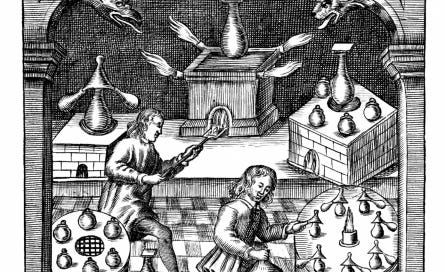YOU GET OUT WHAT YOU PUT IN
Effort, Reciprocity, and the Fragile Foundations of Magical Orders
The promise that effort yields reward lies at the heart of many spiritual and magical orders. “You get out what you put in” is an alluring maxim, speaking to the hope that sincerity, perseverance, and dedication will bear fruit.
But is this always true? The answer depends entirely on the foundations upon which the order is built.
When the scaffolding of an organisation is strong—its rules transparent, its leadership steadfast—members can trust that their offerings will be met with reciprocity. Time and energy, freely given, are transformed into recognition, growth, and the attainment of higher mysteries. The covenant of effort and reward becomes sacred, and its fulfilment inspires further devotion.
Yet, when cracks mar the foundation—when favouritism thrives or guidance falters—the promise of reciproc…
Keep reading with a 7-day free trial
Subscribe to Magick Without Tears with Marco Visconti to keep reading this post and get 7 days of free access to the full post archives.





